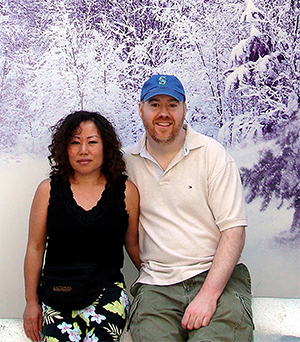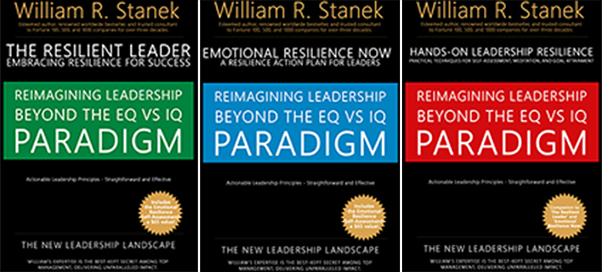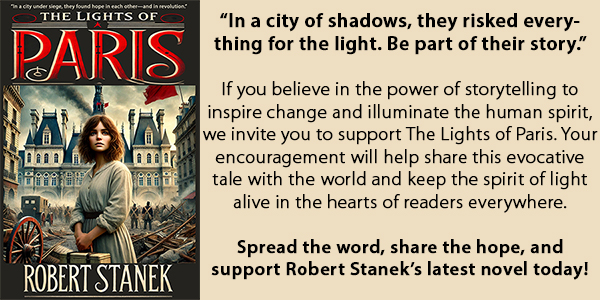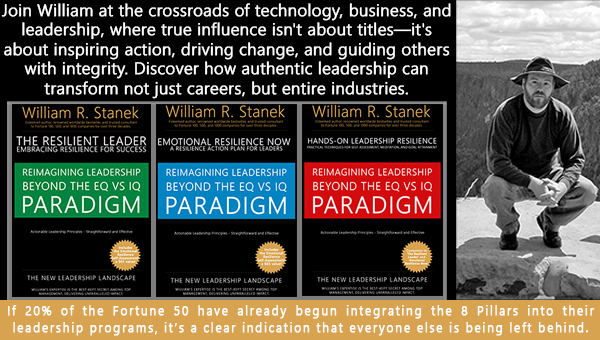

Mindful Living
In our fast-paced world, mindfulness offers a path to connection and inner peace. The "Mindful Living" series by William and Hui Cha Stanek encourages you to slow down, be present, and transform your everyday life. Whether you’re new to mindfulness or deepening your practice, these articles provide practical guidance for living with purpose, presence, and clarity. Embrace each moment with awareness, and connect more deeply with yourself and the world around you.

Transform your life with practical wisdom. Discover William Stanek's 'Living Well' series—your guide to a balanced and fulfilling life.
Discover William Stanek's Exclusive Art Collection
Explore and purchase the stunning art featured on this site. Own a piece of William Stanek's unique and captivating artwork today!
(December 21, 2024) Cultivating Compassion: The Staneks’ Approach to Emotional Healing
Compassion is one of the most powerful forces in the human experience, yet it’s often the first thing we neglect—both toward ourselves and others—especially in times of stress, pain, or conflict. For Hui Cha and me, compassion became a lifeline, a way to heal emotional wounds and navigate the complexities of life with empathy and understanding. Through mindfulness, we learned that true compassion begins with presence—with being fully aware of our own emotions and those of others, and responding with kindness rather than judgment.
In our journey together, we discovered that cultivating compassion wasn’t just about being nice or avoiding conflict; it was about deeply understanding our own pain and the pain of others, and using that understanding as a foundation for emotional healing and resilience. Compassion allowed us to navigate the darkest moments with grace, to resolve conflicts with empathy, and to create a deeper, more meaningful connection with ourselves and each other.
In this article, we’ll explore the connection between mindfulness and compassion, share techniques for developing self-compassion and empathy, and offer exercises that can help you cultivate a compassionate mindset in your own life. Through our experiences, we’ve come to believe that compassion is not just a virtue—it’s a cornerstone of emotional healing and a path to true resilience.
The Link Between Mindfulness and Compassion: A Path to Emotional Healing
Mindfulness and compassion are deeply interconnected. Mindfulness brings us into the present moment, allowing us to see things as they are, without the filters of judgment, fear, or anger. When we approach our experiences with mindfulness, we create the space for compassion to arise naturally—both for ourselves and others.
Mindfulness as the Foundation of Compassion
When we are mindful, we become more attuned to our own suffering and the suffering of those around us. This awareness is the first step toward compassion. For Hui Cha and me, mindfulness became a way to pause, to notice the emotions that were arising within us, and to respond with kindness rather than reactivity. Instead of being swept away by anger or frustration, we learned to recognize these emotions as signals—opportunities to practice compassion for ourselves and others.
One of the most profound lessons we learned is that compassion isn’t just about responding to others with kindness—it’s also about how we treat ourselves. In moments of pain or failure, it’s easy to be harsh or self-critical, but mindfulness taught us to approach these moments with self-compassion. By acknowledging our own pain and offering ourselves the same kindness we would offer a friend, we began to heal emotional wounds that had been left untended for too long.
The Role of Empathy in Compassion
Empathy is the ability to understand and share the feelings of another. It’s the bridge between mindfulness and compassion—allowing us to connect deeply with others and respond with genuine care. Through mindfulness, we became more empathetic, more aware of the emotions and needs of those around us. This empathy deepened our relationships, helping us to navigate conflicts with understanding and to support each other through difficult times.
For us, empathy was often the key to resolving conflicts that might have otherwise driven us apart. By taking the time to truly understand each other’s perspectives and emotions, we were able to move beyond the surface issues and address the deeper needs that were at the heart of the conflict. This practice of mindful empathy strengthened our bond and helped us cultivate a compassionate mindset that has carried us through the challenges of life.
Techniques for Developing Self-Compassion and Empathy
Cultivating compassion, both for yourself and others, is a practice that requires intention, mindfulness, and patience. Here are some techniques that helped us develop self-compassion and empathy on our journey:
-
Self-Compassion Meditation:
- Self-compassion meditation is a practice that involves directing kindness and understanding toward yourself, especially in moments of pain or difficulty. This meditation helps to counteract self-criticism and promote emotional healing.
- How to Practice Self-Compassion Meditation:
- Find a quiet place where you can sit comfortably. Close your eyes and take a few deep breaths to center yourself.
- Begin by bringing to mind a situation in which you’ve experienced pain, failure, or difficulty. Notice the emotions that arise—whether it’s sadness, anger, frustration, or disappointment.
- As you sit with these emotions, gently place your hand over your heart as a gesture of comfort and care.
- Silently repeat phrases of self-compassion, such as “May I be kind to myself,” “May I accept myself as I am,” or “May I give myself the compassion I need.”
- Allow these words to sink in, letting go of any harsh self-judgment or criticism. Focus on offering yourself the same kindness and understanding you would offer a friend in a similar situation.
-
Mindful Listening:
- Mindful listening is a powerful way to cultivate empathy. It involves being fully present with the person you’re listening to, without interrupting, judging, or planning your response. This practice deepens your understanding of others and fosters a compassionate connection.
- How to Practice Mindful Listening:
- When someone is speaking to you, make a conscious effort to give them your full attention. Put away distractions, maintain eye contact, and focus on their words and emotions.
- As you listen, notice the feelings and thoughts that arise within you, but resist the urge to interrupt or offer advice immediately.
- Reflect back what you’ve heard to ensure understanding, and ask open-ended questions to encourage further sharing.
- Respond with empathy and compassion, acknowledging their feelings and offering support.
-
Loving-Kindness Meditation (Metta):
- Loving-kindness meditation, also known as Metta, is a practice that involves sending goodwill and compassion to yourself and others. This meditation helps to cultivate a compassionate mindset and to develop empathy for all beings.
- How to Practice Loving-Kindness Meditation:
- Begin by sitting comfortably and taking a few deep breaths. Bring to mind someone you care about and silently repeat phrases of loving-kindness, such as “May you be happy,” “May you be healthy,” “May you be safe,” and “May you live with ease.”
- After a few minutes, expand your focus to include yourself, repeating the same phrases of loving-kindness directed inward.
- Gradually extend this compassion to others in your life—friends, family, colleagues, and even those with whom you have conflicts.
- Finally, extend these wishes of loving-kindness to all beings, silently repeating, “May all beings be happy, healthy, safe, and live with ease.”
-
Acts of Kindness:
- Compassion isn’t just about what we feel; it’s about what we do. Engaging in small acts of kindness—whether for yourself or others—can reinforce a compassionate mindset and promote emotional healing.
- How to Practice Acts of Kindness:
- Identify simple acts of kindness you can perform each day, such as offering a compliment, helping a colleague with a task, or taking a moment to check in on a friend.
- Practice self-compassion by giving yourself permission to take breaks, treating yourself to something enjoyable, or speaking kindly to yourself when you’re struggling.
- Notice how these acts of kindness, both toward yourself and others, impact your emotional well-being and your relationships.
Personal Story: Cultivating Compassion in Times of Pain and Conflict
There was a time in our lives when cultivating compassion wasn’t just a choice—it was a necessity. We were going through a particularly challenging period, dealing with personal pain and the strain it placed on our relationship. The stress and emotional turmoil led to misunderstandings and conflicts that, at times, seemed insurmountable.
During one of these difficult moments, I remember feeling overwhelmed by anger and frustration. It would have been easy to lash out, to let the pain drive a wedge between us. But instead, I chose to pause, to breathe, and to practice mindfulness. As I sat with my emotions, I realized that beneath the anger was a deep well of hurt and fear—not just within myself, but within Hui Cha as well.
Rather than reacting out of anger, I made a conscious effort to approach the situation with compassion. I practiced self-compassion by acknowledging my own pain without judgment, and I extended that compassion to Hui Cha, recognizing that she was struggling too. We sat together in silence for a while, letting the tension dissipate, and then we talked—really talked. Through mindful listening, we were able to understand each other’s perspectives, to empathize with each other’s pain, and to find a way forward together.
That experience was a turning point for us. It reinforced the importance of compassion in our relationship—not just as a way to resolve conflicts, but as a means of emotional healing. By cultivating compassion, we were able to move through the pain with grace and understanding, emerging stronger and more connected than before.
Exercises for Practicing Compassion Meditation and Acts of Kindness
Cultivating compassion is a practice that can be integrated into your daily life through meditation and acts of kindness. Here are some exercises to help you develop a compassionate mindset, inspired by the practices that guided us on our journey:
-
Daily Self-Compassion Check-In:
- Set aside a few minutes each day to check in with yourself and practice self-compassion. Use this time to acknowledge any difficult emotions or challenges you’re facing and to offer yourself kindness and understanding.
- How to Practice:
- Find a quiet place to sit and take a few deep breaths.
- Reflect on how you’re feeling—physically, emotionally, and mentally.
- If you notice any areas of pain or difficulty, place your hand over your heart and silently repeat phrases of self-compassion, such as “May I be kind to myself” or “May I accept myself as I am.”
- Allow yourself to feel the warmth and care of these words, letting go of any harsh self-criticism or judgment.
-
Compassion Meditation for Others:
- Practice compassion meditation by focusing on someone in your life who may be struggling. This could be a friend, family member, colleague, or even a stranger.
- How to Practice:
- Sit comfortably and close your eyes. Bring to mind the person you wish to focus on.
- Silently repeat phrases of compassion, such as “May you find peace,” “May you be free from suffering,” and “May you experience love and joy.”
- Visualize this person receiving your compassion, and imagine their burdens being lightened.
- Continue the meditation for a few minutes, then take a moment to reflect on how it feels to offer compassion to others.
-
Weekly Acts of Kindness:
- Set a goal to perform at least one act of kindness each week, either for yourself or someone else. These acts don’t have to be grand gestures—often, the simplest acts have the most profound impact.
- How to Practice:
- Identify an act of kindness you can perform, such as writing a note of appreciation, helping someone with a task, or simply offering a kind word.
- Perform the act with intention and mindfulness, focusing on the positive impact it may have on the recipient.
- Reflect on how this act of kindness made you feel and how it may have strengthened your connection with others.
Conclusion: Compassion as the Cornerstone of Emotional Resilience
For Hui Cha and me, compassion has been the foundation of our emotional healing and resilience. It’s a practice that has allowed us to navigate life’s challenges with empathy, understanding, and grace—whether in times of personal pain or interpersonal conflict. We’ve learned that compassion isn’t just a feeling; it’s a choice, a way of being that transforms how we relate to ourselves and others.
We believe that compassion is the cornerstone of emotional resilience. It’s a practice that anyone can cultivate, and its benefits are profound. By approaching yourself and others with kindness, empathy, and understanding, you can heal emotional wounds, strengthen your relationships, and build a more compassionate world.
We encourage you to explore the power of compassion in your own life. Start with small, intentional practices, and allow them to grow into a compassionate mindset that guides you through all of life’s ups and downs. Through mindfulness, empathy, and acts of kindness, you can cultivate a heart full of compassion, and in doing so, discover the true power of emotional healing and resilience.

Join William at the crossroads of technology, business, and leadership, where true influence isn't about titles - it's about inspiring action, driving change, and guiding others with integrity. Discover how authentic leadership can transform not just careers, but entire industries.
Bring Inspiration Home
Enhance your space with William Stanek's evocative art. Each piece is crafted to inspire and uplift your everyday life.

Support The Lights of Paris by Robert Stanek, William Stanek's pen name! Through vivid historical detail and deeply moving character stories, Robert takes readers on an unforgettable journey through one of history’s most transformative times.

















